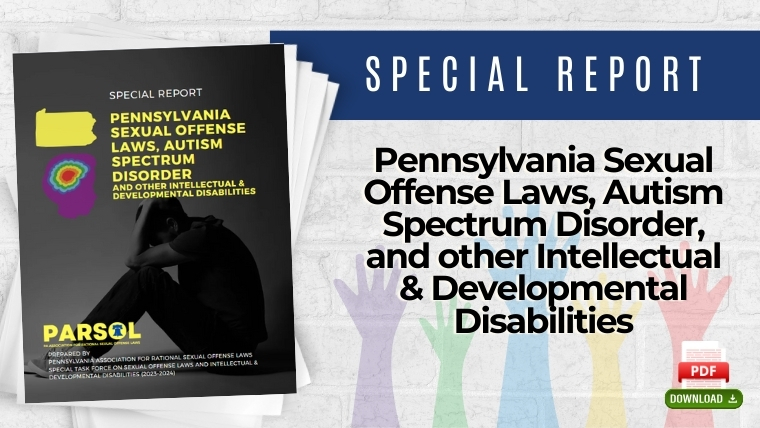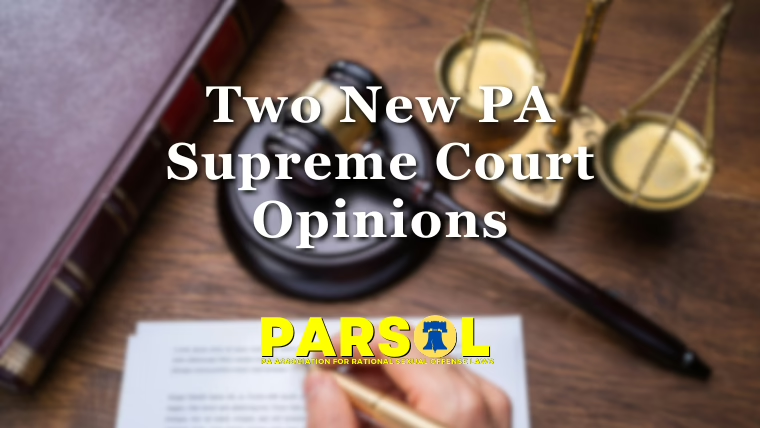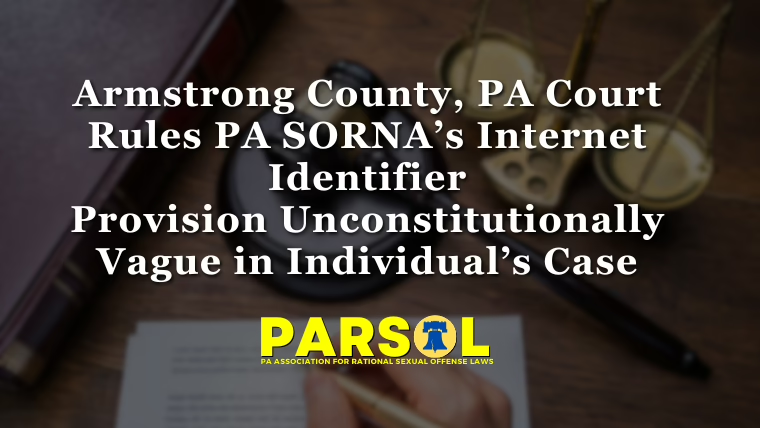Pennsylvania Association for Rational Sexual Offense Laws (PARSOL) Addresses Intersection of Autism and Sexual Offenses During April Awareness Months
[HARRISBURG, PA] – As Pennsylvania observes both Autism Acceptance Month and Sexual Assault Prevention Month this April, the Pennsylvania Association for Rational Sexual Offense Laws (PARSOL) has released a new report focusing on individuals with autism spectrum disorders and other intellectual and developmental disabilities who are involved in sexual offense cases.
 “The intersection of these two critical awareness months underscores the importance of understanding and addressing the unique challenges faced by individuals with autism and related conditions in matters related to sexual behavior and the law,” said Josiah Krammes, chair of the PARSOL board of directors and education chairperson.
“The intersection of these two critical awareness months underscores the importance of understanding and addressing the unique challenges faced by individuals with autism and related conditions in matters related to sexual behavior and the law,” said Josiah Krammes, chair of the PARSOL board of directors and education chairperson.
“There is a pressing need for increased awareness and sensitivity in the justice system and within communities regarding the complexities surrounding individuals with autism spectrum disorders and intellectual and developmental disabilities who may become involved in sexual offense cases. PARSOL stresses the importance of recognizing and accommodating these individuals’ specific needs and vulnerabilities,” according to the new report.
The report, Pennsylvania Sexual Offense Laws, Autism Spectrum Disorder, and Intellectual & Developmental Disabilities, found:
- While the vast number of individuals with intellectual and developmental disabilities involved with sex crimes are the victims, sometimes, due to disability manifestations, a small percentage of this population gets caught up in the justice system, but often without criminal intent. The target population sexually offends due to developmental delays, inability to comprehend legal vs. illegal activities, poor impulse control, issues around empathy, and the compulsive behavioral cycle associated with their disability. The individual’s support team should consider these factors as pre-offending preventative measures during any criminal investigation, subsequent court proceedings, and correctional activity.
- Accommodations for the target population should be made at all justice system levels. Resources already exist, but awareness of such tools is low.
- Various legal consequences associated with sexual offending greatly exacerbate risk within the state-approved risk-needs-responsivity model, including the increased shame, stigma, and societal pressures placed on an individual on the Pennsylvania Megan’s Law SORNA Registry and the mandatory treatment programs with providers not equipped to incorporate a neurodivergent patient’s needs into their standard treatment practices.
- The frequent use of polygraph examinations as part of the Pennsylvania Sex Offender Assessment Board’s adoption of the “Containment Model” is ineffective for individuals with intellectual and developmental disabilities whose neurophysiological responses are non-typical.
- Family and caregivers of the target population frequently assume that they are either nonsexual, incapable of understanding sexual conversations, or generally uncomfortable with discussions about healthy relationships, sexuality, boundaries, etc. This lack of education often leads these individuals to use the internet to learn about sex and sexuality, including discovering sexually explicit materials. This, combined with a frequent view of “if it was illegal, it wouldn’t be on the internet,” is dangerous.
- There is a plethora of academic and research-based evidence to support actions around prevention, responsivity, and mitigation of future harms if adequately implemented and included at all stages of care.
Download the Full Report
Earlier this month, Supreme Court of Pennsylvania Justice Kevin Dougherty said that as the number of neurodivergent people in the state climbs, “so does our commitment to ensuring Pennsylvania’s courts are prepared to recognize, accept, and meet the needs of all court users and their families.”
PARSOL agrees. The significance of providing appropriate support, education, and resources to individuals with autism and developmental disabilities to prevent sexual offenses and ensure fair treatment within the justice system.
For more information and the full report on PARSOL’s advocacy efforts and resources related to autism spectrum disorders and sexual offenses, please visit https://parsol.org/iddreport.
About PARSOL
The Pennsylvania Association for Rational Sexual Offense Laws (PARSOL) is committed to advocating for rational, evidence-based laws and policies related to sexual offenses. PARSOL aims to promote fairness, justice, and public safety while protecting the rights and dignity of all individuals affected by sexual offense laws in Pennsylvania.




